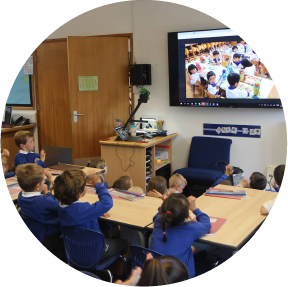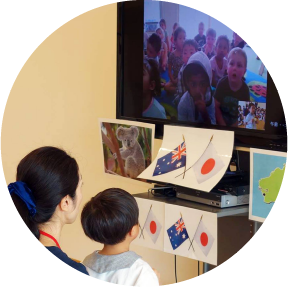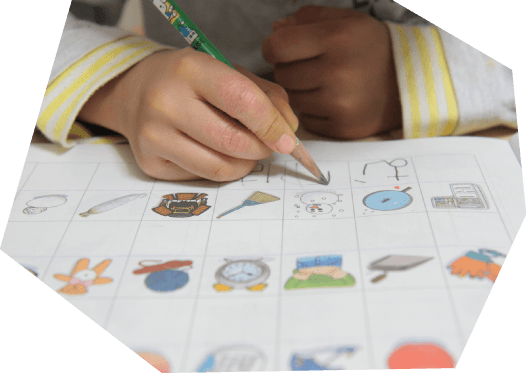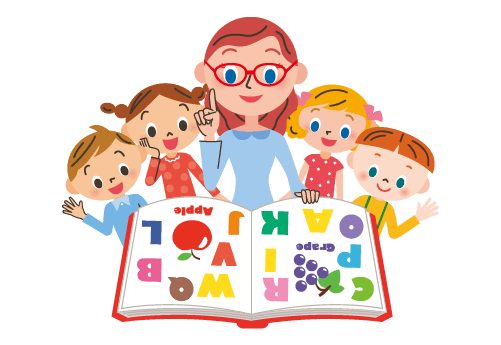Our first international friendship program was started in 1983.
Since there was no Internet access, it was so difficult to communicate with a any foreign kindergartens.
It took a few months to deliver children’s pictures and letters oversea by international postal service.
Therefore, we gave up to keep in touch with the kindergarten.
If children can interact with the same aged children of the world in their
early childhood, which is said to foster the foundation of personality formation (character and values), we believe that they can feel different cultures and customs from experiences.
So we had looked for the next opportunity for international exchange for a long time.
And the time has passed and the era has entered the advanced information society.
Thanks to the rapid development of communication networks and various ICT devices, we got new educational environment where children can do international exchange easily. In addition, the era has become a global society, education for cross-cultural understanding, multicultural coexistence has become more noticeable.
From 2015, some teachers from around the world who have the same motivation
gathered and started the international friendship program “Hello, Friends Around the World.” Currently, the circle is
expanding steadily with the United States, Sri Lanka, Taiwan, Australia and the UK. Skype, Zoom video exchange can be done with Australia, and Taiwan because there is little time difference from Japan.
Although the project has only just begun, Angel Kindergarten is definitely taking the first step to the world.

-

- The United States of
America
- Language:English
Area: 9,833,520 km²
Population: 325,365,189 (2017 estimate)
Food:Pizza/ Hamburger/ hotdog /
Coca cola
Capital:Washington
Time:-13 hours
-

- Taiwan
- Language:Mandarin Taiwanese
Area: 36,197 km²
Population: 23,550,077(2017 estimate)
Food:Guabao/ Xiaolongbao/ Stinky Tofu
Bubble tea/Pineapple cake
Capital:Taipei
Time:-1 hours
-

- The United Kingdom of
Great Britain and Northern
Ireland
- Language:English
Area: 242,495 km²
Population: 65,648,000 (2016 estimate)
Food:Fish and chips/ Steak/
English breakfast/Black pudding
Capital:London
Time:-9 hours
-

- Sri Lanka
- Language:Sinhala Tamil English
Area: 65,610 km²
Population: 22,409,381 (2017 estimate)
Food:Curry, kottu roti black tea
Capital:Sri Jayawardenepura Kotte
Time:-3.5 hours
-

- Australia
- Language:English
Area:7,692,024 km²
Population: 24,704,000(2017 estimate)
Food:Prawn/Fish and chips/Meat pie/
Tim Tam
Capital:Canberra
Time:+2 hours











